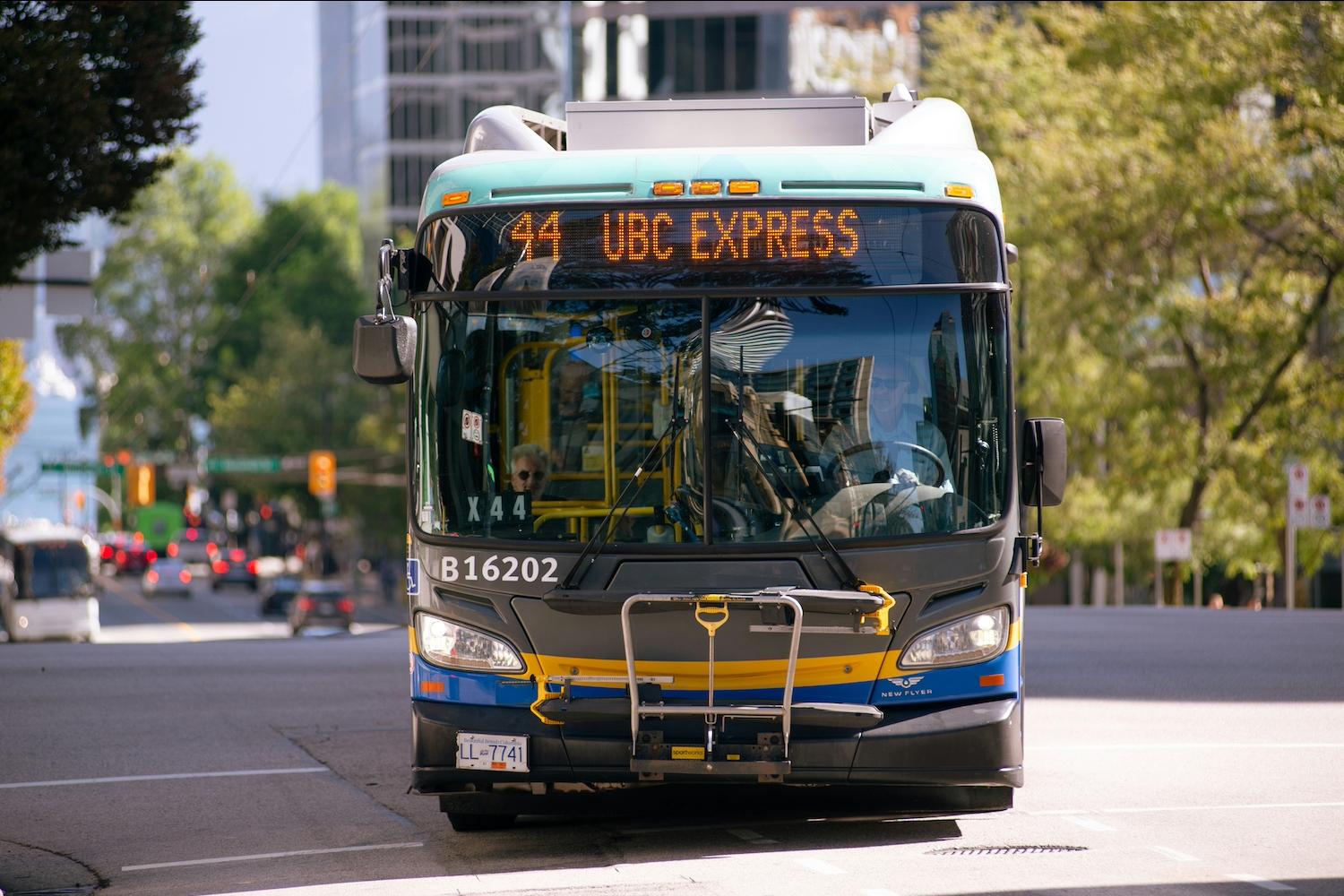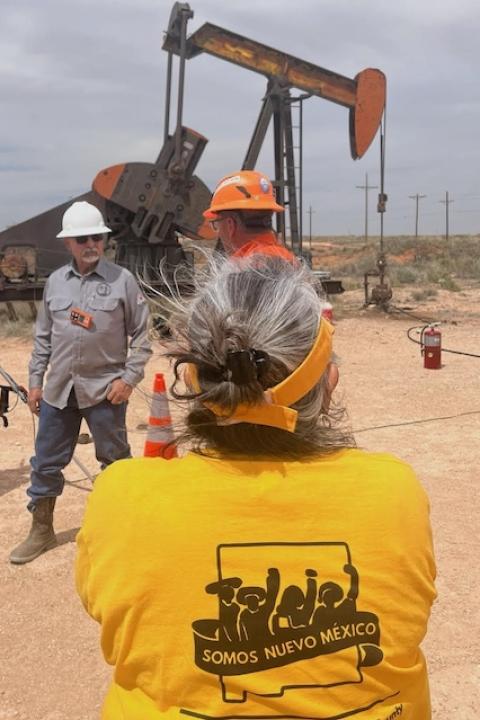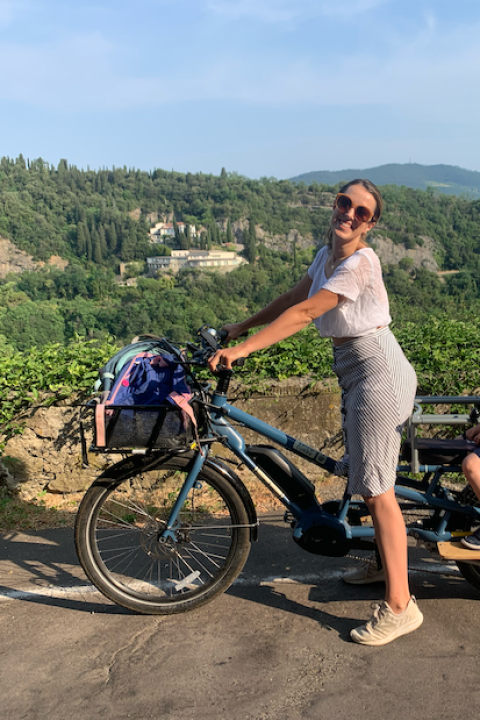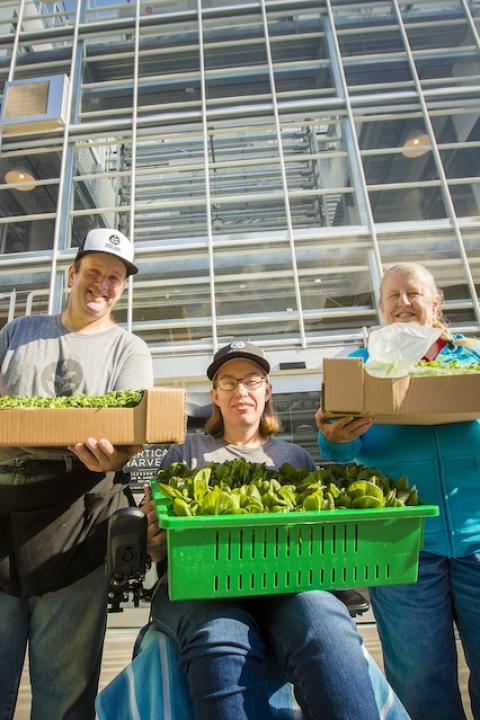
(Image: Albert Stoynov/Unsplash)
For college students in the United States, classes are in full swing, midterms are wrapping up, and the list of on-campus resources that professors shared on the first day of class was probably forgotten weeks ago.
I want to jog your memory for our 2024 Sustainable Living Challenge because the student benefits your school offers can save you a lot of money and help you live more sustainably.
Public transportation
Transportation is the largest source of greenhouse gas emissions in the U.S., accounting for about 29 percent of the country’s total emissions, according to the U.S. Environmental Protection Agency. Public transportation emits far fewer greenhouse gases than driving or carpooling because the large number of people using it at once makes it more efficient. On top of that, many colleges are transitioning their fleets to electric.
Most colleges in the U.S. offer transit passes that allow students to ride on-campus buses, and some of them extend to public transportation around the city, too. Often, these passes are free or are already a part of the fees you’re paying to attend school, so you may as well use them. If it’s not included or free, there’s probably an option for you to use public transit at a significant discount.
When I was a student using free public transit, I spent less money on gas, car maintenance and on-campus parking fees. And it actually made my commute quicker.
The library and lending more than books
One of the biggest mistakes I made during my first semester of college was buying all of my textbooks new from the campus bookstore. I would have saved hundreds of dollars if I rented my books, used the library, or bought used books instead of new ones. Plus, I wouldn’t have added more used books to the thousands already in circulation when I was done with them.
Plenty of bookstores in-person and online rent or sell used textbooks. You can also find them on platforms like Facebook marketplace. The library was my favorite option, but it usually only had one or two copies of the books I needed, so I had to be diligent about reserving them.
These options all work for non-textbook items, too. My school gave students free access to cameras and lighting equipment, audio recording studios and 3D printers. Students could even borrow business-professional clothes for job interviews and career fairs instead of buying new pieces they might only wear a couple of times. Sharing all of these things means fewer of them need to be produced new, and fewer of them end up in landfills at the end of the semester.
Have fun on campus
My college budget broadened my definition of fun. My friends and I spent a lot of time enjoying each other’s company at home, but I also attended plenty of free university and student-organization-led events centered around my interest in the environment.
Whether we were picking up litter along the local river or reusing “garbage” to make art, there’s nothing a bunch of college students can’t make fun. You’ll likely find a calendar of university-led events with a quick Google search, but it’s also worth checking out the directory of student-led organizations on campus. There’s probably more than one that aligns with your interests.
One of my favorite things to do was visit the walking trails, botanical gardens, and nature reserves that the college owned. Spending time in nature can benefit your physical and mental health, but these spaces also provide wildlife habitat, support the local ecosystem, and mitigate urban heat, among other benefits. Ensuring natural areas are used and appreciated is a good way to incentivize the school to keep them around.
Sustainability classes and research
College is a great opportunity to gain knowledge about sustainability even if classes on the topic aren’t required for your degree. I took several introductory classes as electives.
Though that didn’t necessarily save me money, the things you’ll learn might qualify you to join one of your school’s sustainability or environment-related research projects. Many of those positions are paid. While I didn’t take that route, I can confidently say the information I learned in those classes helps me in my career after college.
Put your money to good use
For many people, myself included, entering college comes with a crash course in the world of finance. While you’re learning about loans, interest rates and taxes, you may also learn that banks make money by lending our money elsewhere when we leave it in our accounts.
Most banks lend to and invest in the fossil fuel industry. As a result, it’s estimated that every $1,000 in a savings account at one of those institutions is indirectly linked to the same amount of greenhouse gas emissions that are produced by flying from New York to Seattle each year, according to the climate solutions nonprofit Project Drawdown. If you have the time to do a bit of research, you can find financial institutions with commitments to social and environmental causes that are third-party certified to choose from instead.
Many colleges are also attached to credit unions. These member-owned, not-for-profit financial institutions are less likely to be linked to fossil fuels because their focus is investing in their communities. You’ll need to look into whether your school’s credit union is linked to fossil fuels and how it interacts with the community, but many of them provide free financial education, donate to local organizations and work with small businesses.

Taylor’s work spans print, podcasts, photography and radio. She brings her passion for covering social and environmental issues through the lens of solutions journalism to her work as editorial assistant.














